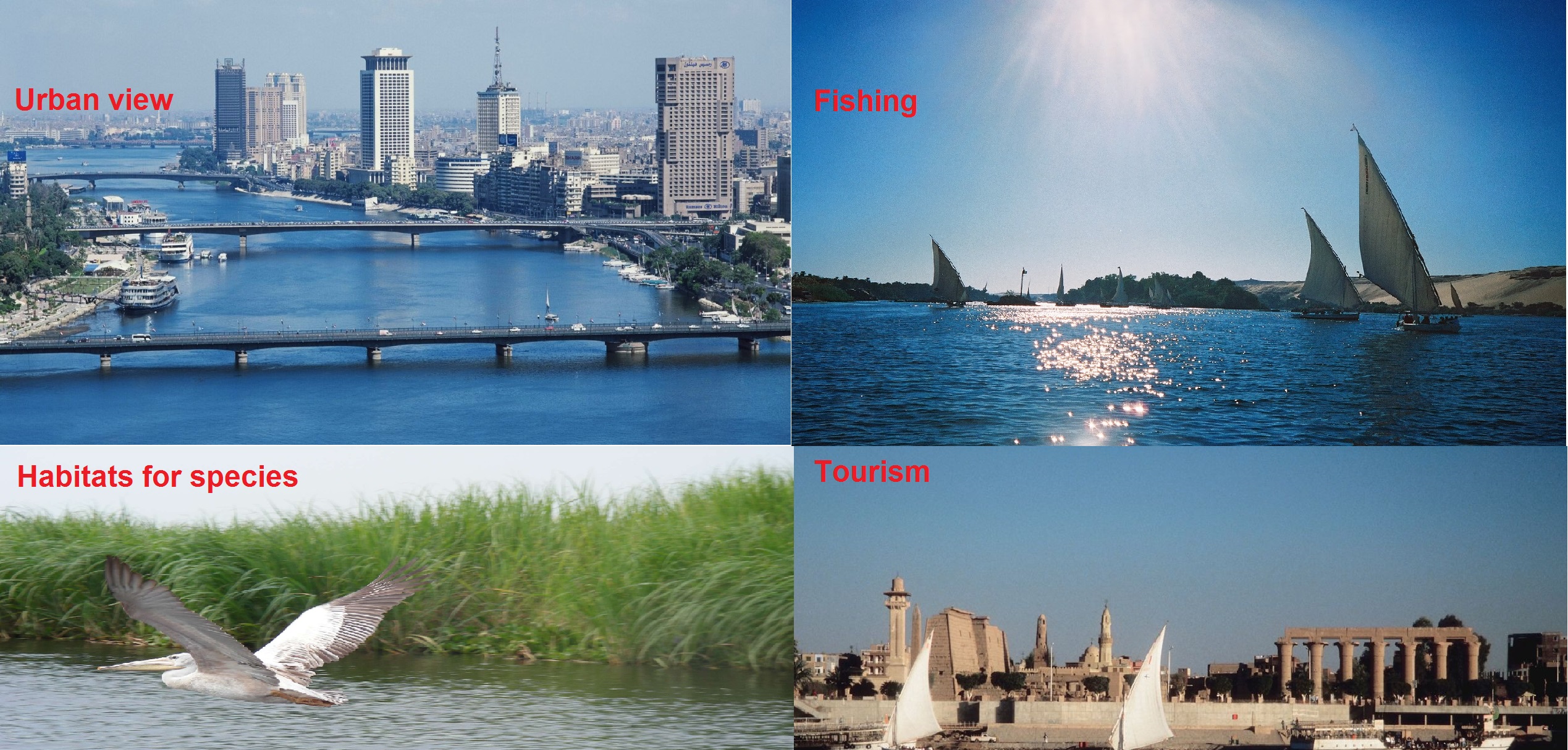
Uploaded on 2017-06-03 by Eslam Helmy Zekry Abd ElGalil
I am currently working in the Kingdom of Saudi Arabia (in the Arabian Gulf region). These areas are known for their natural resources, such as rivers, forests, etc. It is distinguished only by oil and gas fields. So let me tell you about the ecological systems in my main country of Egypt. I will explain in the following points the ecological systems on the Nile, which is one of the most famous rivers of the world: a.Provisioning services : * Fishing: The Nile River provided fish as a staple food for a long period of time in the surrounding areas, where many people worked in hunting and fishing through some traditional methods or simple sailing boats. * Agriculture: Due to the continuous floods that were in the past periods of prosperity and prosperity, the soil was fertile and enriched with natural materials that led to the work of many people in the profession of agriculture, and was known in Egypt for a considerable period of time as it was one of the largest countries in the field This is due to the existence of the Nile River, which has provided a fertile breeding ground for fresh water and irrigation. * Water purified: Of course rivers are known by their purified water, The Nile River plays an important strategic role in providing water for a very large area in Egypt, and we see how it affects the concentration of the vast majority of the population around its banks. b.Regulating services: * High dam: A huge dam was built in southern Egypt in the early sources of the Nile River in order to control the flood operations that occurred in previous times, which resulted in many damage such as destruction of property and agriculture. After the construction of the dam was reserved water behind him in a large lake called Lake Nasser, which is now an important strategic stock of Egypt. * Conservation of biodiversity: The Nile River provides many food for birds and living creatures on the banks of the river, where there are many birds such as (the Threskioris Aethiopica) and (Alopochen aegyptiacus). The river also has many species of fish, which are the main food of some predators, such as crocodiles, as well as food for the population. c.Habitat or Supporting services : * Habitats for species: The Nile River is considered to be an important and strategic site for many migratory migrations of many migratory birds. In Africa or even in Asia. d. Cultural services : * Recreation and mental and physical health : The Nile plays an important role in the lives of the population not only in water and food, but also in the recreational aspect. The State has built and established many places of leisure and entertainment along the banks of the Nile. This has led many people to take a walk around the river and play and enjoy it. * Tourism : The Nile River has existed since ancient times in the early days of history. This is what called for the stability of ancient Egyptian people around it and the building of great civilizations (ancient Egyptian civilization). Thus, many of the shrines around the river were concentrated and were therefore a source of attraction for tourists, whether to enjoy the historical monuments or the Nile River and its spectacular appearance. There are also many tourist groups and environmental scientific studies that come specifically for the Nile River, for studies of the living organisms around it, and the study of biodiversity that is characterized by it.